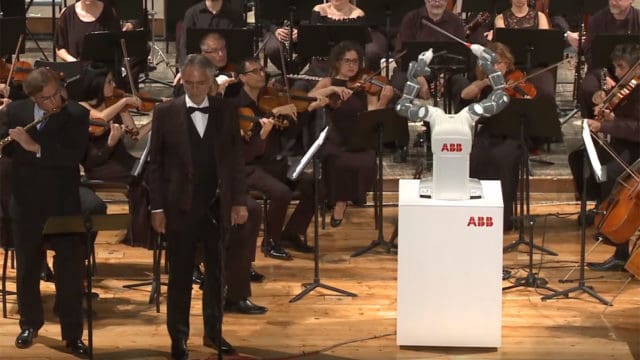
Recently, a YuMi robot served as the conductor at a performance held in Pisa. It was an excellent show of the robot’s manual dexterity, seeing as how it was created by ABB to serve on the assembly line but was re-programmable to serve as a capable conductor. With that said, it is important to note that the YuMi robot is still lacking a critical component of what enables a human conductor to excel, which is to say, it cannot interpret what is happening for the purpose of improvising and thus improving its own performance. In other words, there is still a long way to go before a human conductor can be replaced by a robot, but the distance between the two is short enough that some concern is understandable.
Is the Rise of the Robots Real?
The media tends to depict the rise of the robots as some sort of machine rebellion, which makes for great entertainment but remains something confined to the far future, if that. After all, while machine intelligence has been seeing use for some time now, true AI is still the stuff of science fiction. Instead, the bigger concern might be the uses that people will be putting ever-more capable robots towards, which promise to have enormous consequences for human societies.
For example, consider the humble virtual banker, which is essentially a specialized chatbot that can answer some of the most common questions that a bank customer might ask but will redirect them to a flesh-and-blood bank teller for anything more sophisticated than that. As a result, it can save flesh-and-blood bank tellers a fair amount of time, which in turn, means that banks and other financial institutions need fewer man-hours from said individuals. On its own, this is not a huge issue. However, it is important to note that the increasing sophistication of robots is happening across numerous sectors, meaning that it is not just banks and other financial institutions that are needing fewer human manhours but also a much wider range of businesses that extend to all of the sectors out there. Furthermore, as robots continue to become more and more sophisticated, it is reasonable to assume that they will start out-competing humans in more and more positions.
Of course, this is not the first time that something like this has happened. After all, the United States is still feeling the effects from the decline in its manufacturing sector. However, it is important to note that U.S. manufacturing is bigger than ever, meaning that what happened is that the use of new technologies reduced the need for human labor. Based on this, it is not unreasonable to assume that the YuMi robot’s performance as a conductor could signal something similar happening in the not so distant future, which would have a profound impact on human societies.
With that said, it is important to note that no one can predict the future with perfect certainty, meaning that there is no guarantee that improved automation will eat up even more jobs in the decades to come. Still, it is not a baseless prediction, meaning that interested individuals might want to keep a watchful eye on the latest news regarding the increasing use of automation as a just-in-case precaution.
 Follow Us
Follow Us





